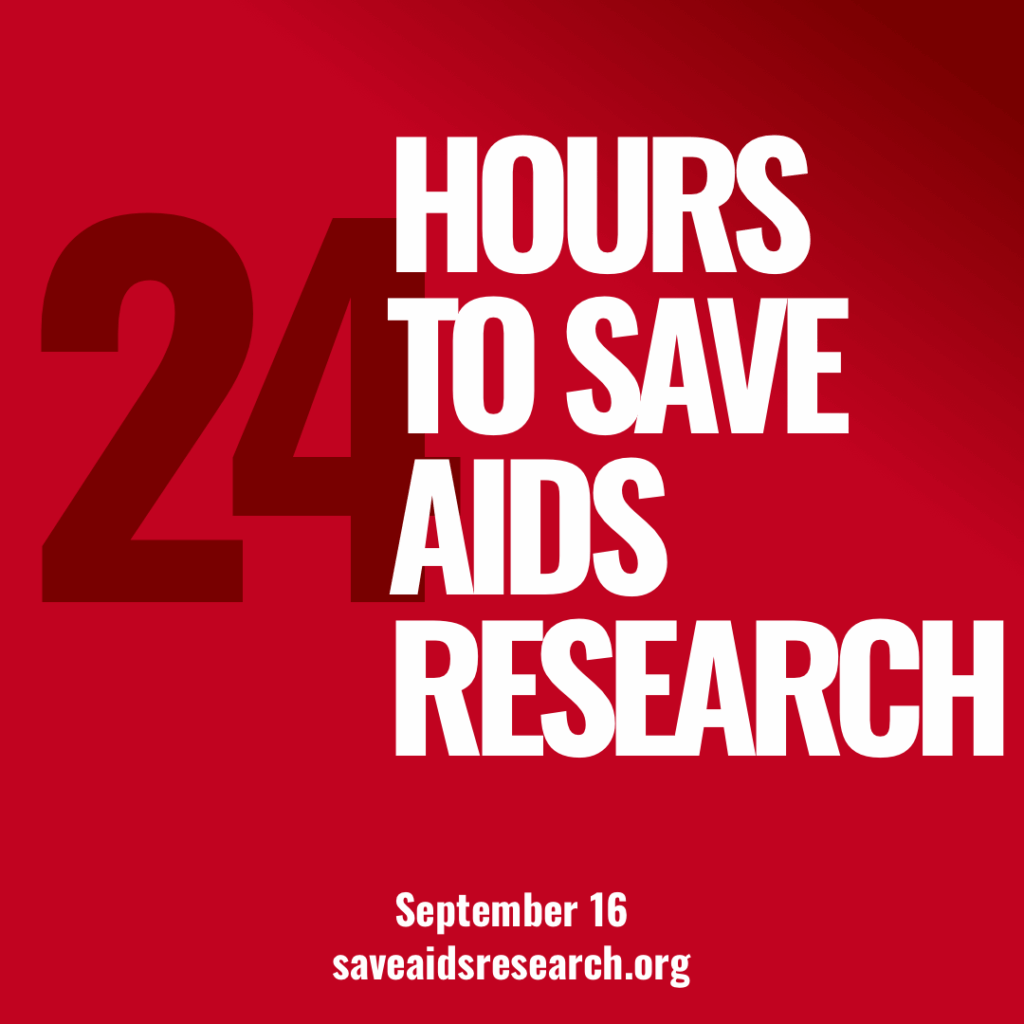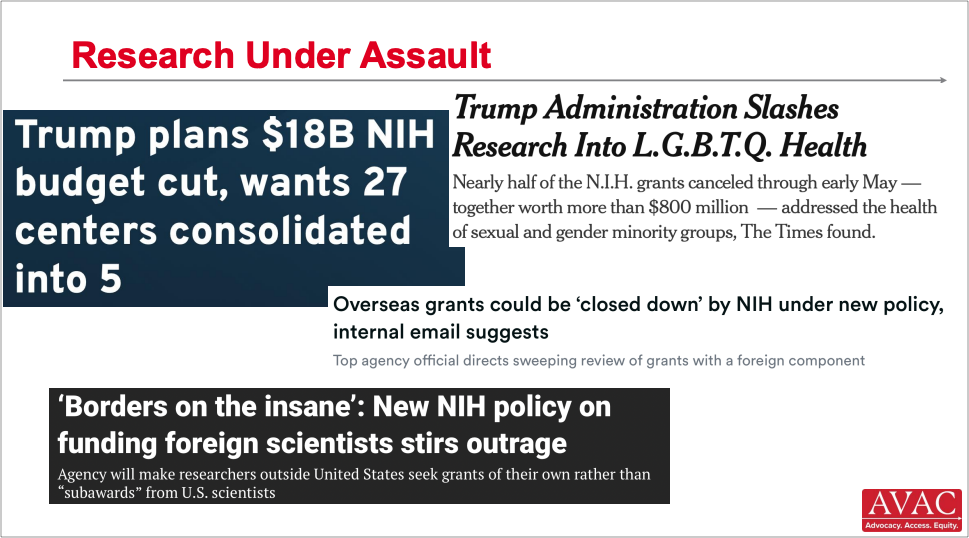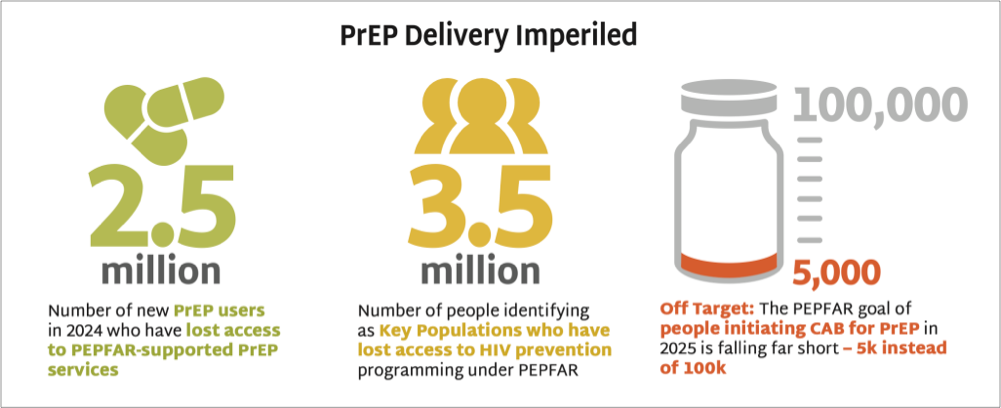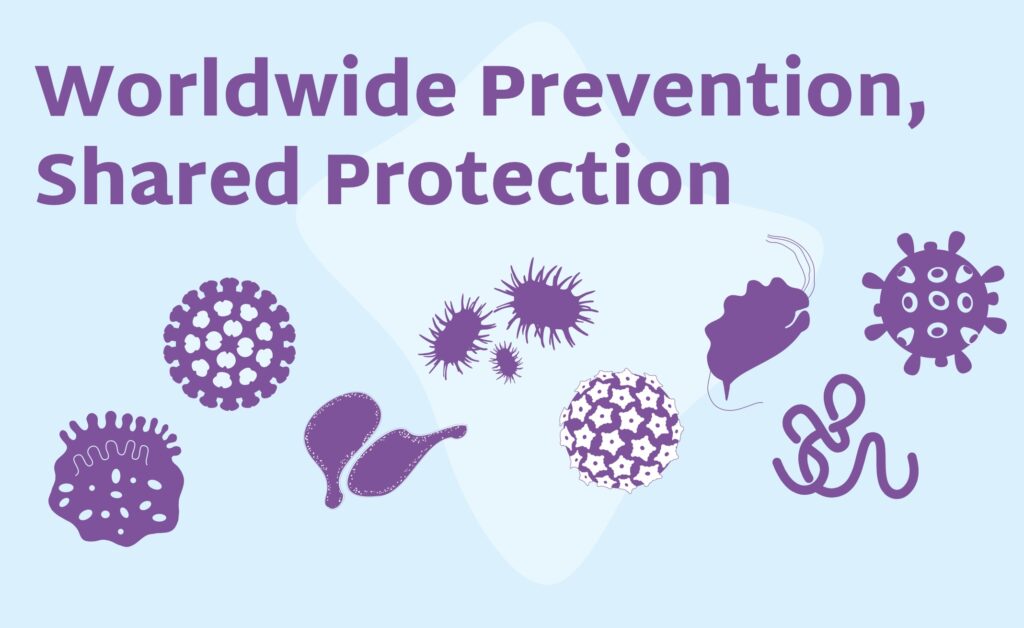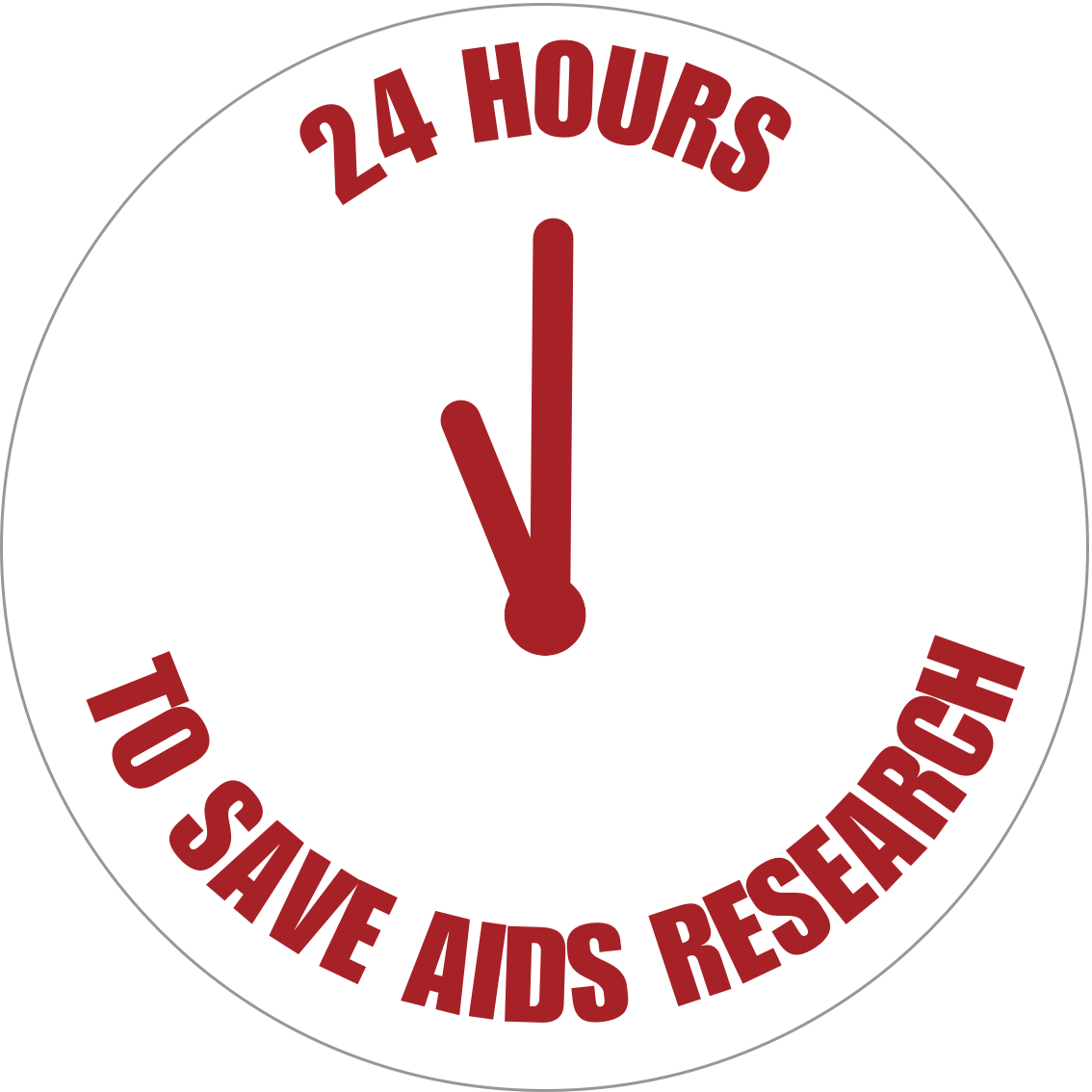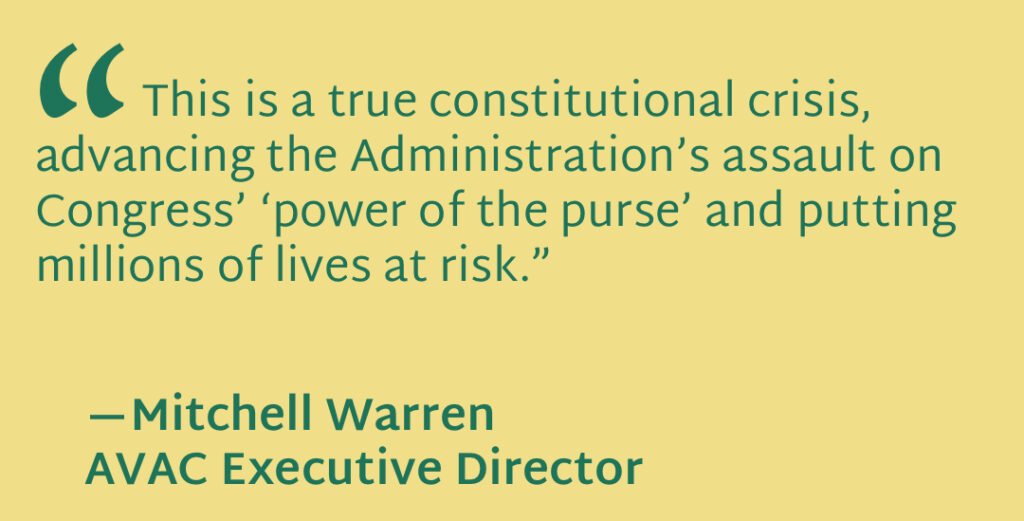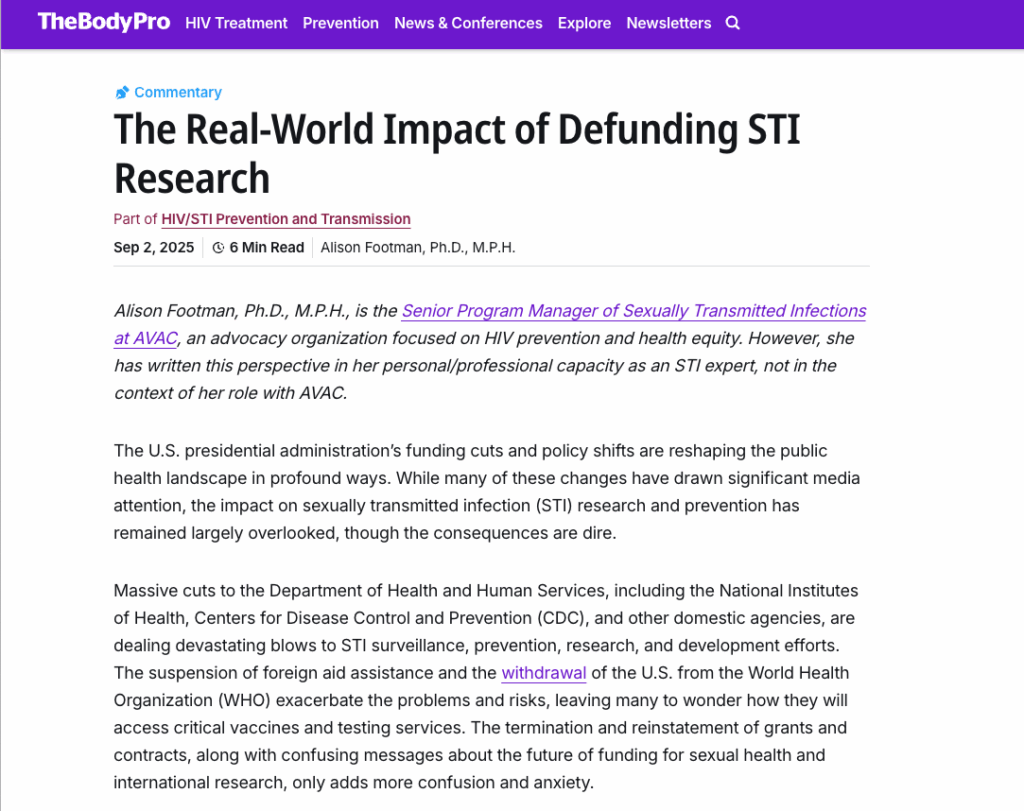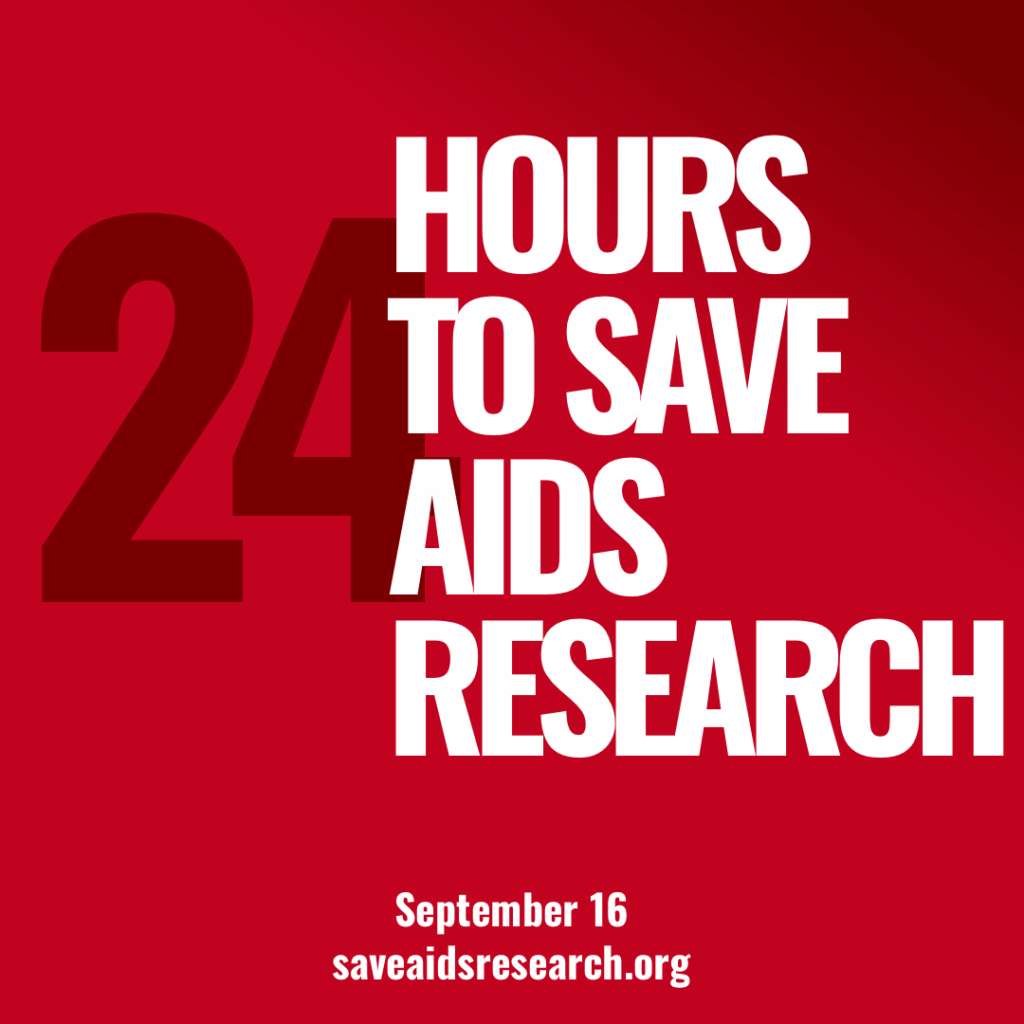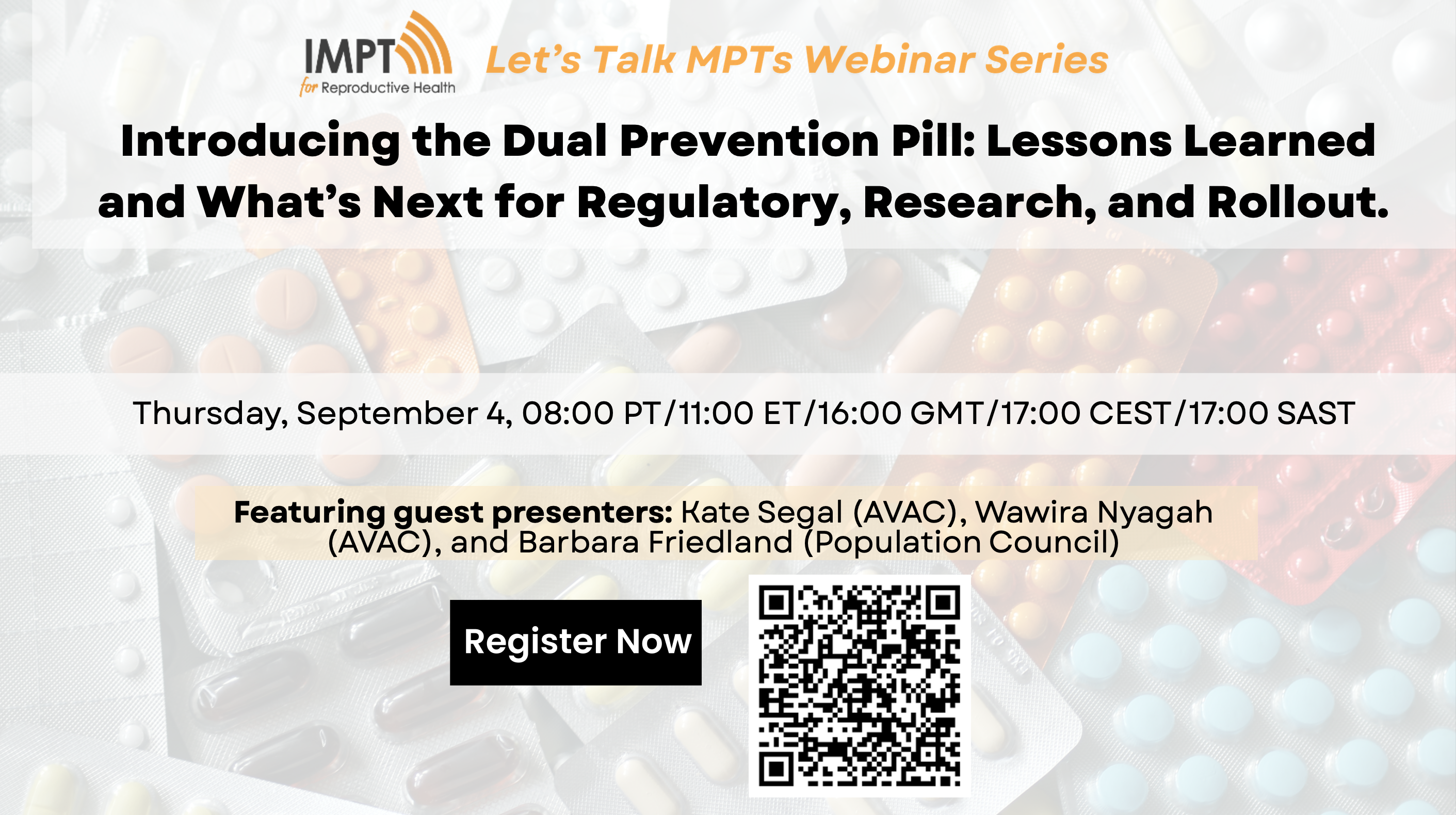As the US government approaches its September 30 fiscal year deadline, the Supreme Court of the United States (SCOTUS) is weighing whether to uphold the District Court’s order in the AVAC v. Department of State lawsuit, which compels the US government to spend billions in congressionally-appropriated foreign aid, or allow the Administration to “run out the clock” as part of the “pocket rescission” maneuver. This ruling, alongside SCOTUS decisions on tariffs, could dramatically expand executive power over spending historically controlled by Congress. Coupled with CDC and vaccine policy turmoil, changes to PEPFAR’s planning process, and the State Department’s new “America First” global health strategy, these developments represent high stakes for HIV programs and the future of foreign aid for global health.
New “America First” Strategy for Global Health Released
Under the plan, the US would initially cover 100% of commodity and frontline healthcare worker costs through the start of the next fiscal year but would shift an increasing share of expenses to partner governments over time. The plan also signals a reshuffling of which countries will receive US investments and may involve “third-country” allies in future agreements to reduce overlap. The plan does prioritize “innovation” and specifically names the importance of lenacapavir (LEN) for PrEP and the recent re-commitment of the Biden Administration first announced in December.
IMPLICATIONS: This new strategy prioritizes US interests over traditional development goals and represents a fundamental overhaul of US global health assistance, with major consequences for HIV prevention and treatment programs worldwide. Moving toward bilateral agreements and compacts risks fragmenting coordination, intensifying the politicalization of assistance, slowing disbursements, and creating uncertainty for countries already grappling with budget shortfalls. While the new strategy appears to reaffirm US commitments to global targets for ending the HIV epidemic, there is concern whether current indicators will continue to be tracked and many unknowns in the details of pending bilateral agreements. For programs like PEPFAR, which have long relied on predictable, multi-year, large-scale US support, the new approach could mean sudden funding gaps and weaker negotiating leverage on pricing or access for new prevention tools. And while it is good (and smart) to see LEN prioritized, the continued unilateral focus on PrEP for mother-to-child transmission reflects a continued blind-eye to the epidemiology of HIV/AIDS and the need to provide LEN and prevention generally more broadly.
READ:
- America First Global Health Strategy—Department of State
- State Department revamps global health aid around bilateral deals—Semafor
- New US global health plan prioritizes drugs, recipients’ self-reliance—Reuters
- The New US Global Health Strategy Gets Personal—To End A Plague Substack
Where Are We With PEPFAR?
PEPFAR has initiated a “Bridge Plan” process to determine programming for a six-month stopgap funding period running from October 2025 to March 2026 and incorporating a 40% budget cut from previous allocations. For decades, countries and civil society have prepared Country Operational Plans (COPs) months in advance with clear budgets, targets and plans. Instead, this Administration began by freezing foreign aid and proposing a 40% cut to global health in the President’s fiscal year 2026 (FY26) Budget Request. In place of COPs meetings, PEFPAR instituted this temporary bridge plan process—with limited time and no stakeholder engagement. Country plans are due on September 24, leaving partner governments and civil society scrambling to meaningfully engage in decisionmaking with sharply reduced resources. Advocates warn that prevention services, key population programs, and the introduction of innovations like lenacapavir could all be delayed or excluded. The process also signals an attempt to go around Congress to enact the President’s requested FY26 budget cuts.
IMPLICATIONS: The Bridge Plan keeps PEPFAR technically alive but with scaled-back funding, compressed timelines, and weaker accountability structures. If granular targets and community voices are sidelined, countries may lose hard-won gains in prevention and treatment and see stalled or reversed progress on HIV. Missing or delaying the rollout of LEN for PrEP, especially for key populations, would exacerbate the setback. Over the next six months, how these plans are finalized will shape the trajectory of global HIV programming for years to come.
READ:
- PEPFAR Approach to Bridge Plan Targets Keeps Data Use Alive—To End A Plague Substack
- Whether PEPFAR Lives or Dies, HIV Leaders Seek a New Way Forward—The Body
US CDC Recommends LEN for PrEP
After the departure of US Centers for Disease Control and Prevention (CDC) leadership in the last month and Senate testimony by its former Director a day prior (see below), the CDC issued new clinical recommendations endorsing injectable lenacapavir as a twice-yearly option for HIV PrEP, marking a major milestone in the expanding PrEP landscape.
IMPLICATIONS: These recommendations are an important step forward, but equitable implementation remains a challenge in the US, especially the very high list price. This progress underscores the importance of strong policy protections like the Affordable Care Act, which requires most private health plans to cover PrEP, including visits and labs at no cost. However, ongoing legal threats to the ACA’s preventive coverage mandate could jeopardize access to LEN and all PrEP options. Tools alone don’t end epidemics; they must be delivered with equity.
Given the political turmoil at CDC, these recommendations reflect – as so eloquently stated by Francisco Ruiz, former director of the White House Office of National AIDS Policy – “the tireless work of colleagues and partners who push science forward despite adversity. Their dedication underscores the need to keep investing in research, our workforce, and the infrastructure that ensures providers, communities, and people everywhere have access to proven HIV prevention tools. This is CDC in action … dedicated people, strong science, healthier communities.”
READ:
- CDC Recommends New Injectable HIV PrEP—CDC MMWR
- CVS holds off adding Gilead’s new HIV prevention shot to drug coverage lists—Reuters
CDC Turmoil as Former Director Testifies Before Senate Committee and ACIP Prepares Vaccine Recommendations
Meanwhile, former CDC Director, Susan Monarez, testified Wednesday at the Senate HELP Committee hearing on her unjust firing. Monarez said she was forced out of the CDC after refusing to pre-approve vaccine recommendations and to fire career officials without cause. “He [HHS Secretary Robert F. Kennedy Jr.] just wanted blanket approval…Even under pressure, I could not replace evidence with ideology.” Monarez’s former chief medical officer, Debra Houry, who resigned shortly after Monarez was removed, echoed these concerns and called for RFK Jr.’s resignation warning that the upcoming Advisory Committee on Immunization Practices (ACIP) meeting could cement dangerous new policies.
As this issue went to publication, the ACIP had just voted 8 to 3 to change the current recommendations that allow children under 4 to receive the combination vaccine for measles, mumps, rubella and varicella (MMRV). The ACIP is expected to vote today on shifting routine Hepatitis B vaccination (HBV) currently given at birth and to make recommendations on vaccines for COVID-19. These shifts raise important questions about sustainability, access, and equity moving forward.
IMPLICATIONS: The testimonies of Monarez and Houry, their departures and the departures of other trusted CDC leaders are eroding confidence in the agency’s ability to make independent, evidence-based decisions. This raises serious questions about whether future CDC guidance will be evidence-based and can maintain credibility in an increasingly politicized environment. When public health decisions are perceived as politically pre-determined rather than evidence-based, public confidence in recommendations will erode and public health will be compromised. Departed leaders are encouraging individuals to seek advice of their medical professional over national recommendations. Health officials are warning that vaccine uptake will be lower, disease outbreaks will be more likely and health responses will be weaker.
READ:
- Ousted CDC director testifies she was fired for resisting pressure from RFK Jr.—NPR
- What It’s Like to Work Inside a Broken CDC—The Atlantic
- Monarez details her ouster, challenges Kennedy’s vaccine changes in heated Senate hearing—Endpoints
- The fate of the CDC hinges on this new, three-page table—Inside Medicine Substack
- I’m a former CDC director. I’m deeply concerned about the future of vaccines in the US—
- STAT
- CDC advisers vote to change guidance on MMRV vaccines—NPR

24 Hours to Save AIDS Research
Earlier this week, nearly 5,000 scientists, researchers, advocates and members of the community came together for the online marathon to showcase and support decades of US investment in HIV research: what it has achieved and what’s now at risk. Since January 20, the US Presidential Administration has been making massive cuts to HIV research, dismantling the infrastructure for conducting research and spreading disinformation on the benefits of research. For 24 hours, more than 60 researchers from all over the world broadcast the facts, countered the lies and showed what HIV research has achieved. All recordings will be posted soon.
What We’re Reading
- Foreign agent laws are spreading like wildfire and crippling NGOs—Devex
- Africa CDC’s rocky road to stability—Devex
- Wellcome’s “Future of Global Health” Initiative: What is the bottom line?—Nina Schwalbe Substack
- ‘HIV Unwrapped’ combines science and style for New York Fashion Week—Gay City News
- How Mpox revealed an epidemic of untreated HIV in Sierra Leone—The Independent
- Trump asks the Supreme Court to give him total control over the US economy—Vox
- US lawmakers propose sweeping State Department reforms—Devex
- An HIV Outbreak in Maine Shows the Risk of Trump’s Crackdown on Homelessness and Drug Use – KFF Health News—KFF
- White House Plans Broad Crackdown on Liberal Groups—New York Times
- Despite fear of retaliation, hundreds of federal workers urge Congress to protect medicine and science—STAT

